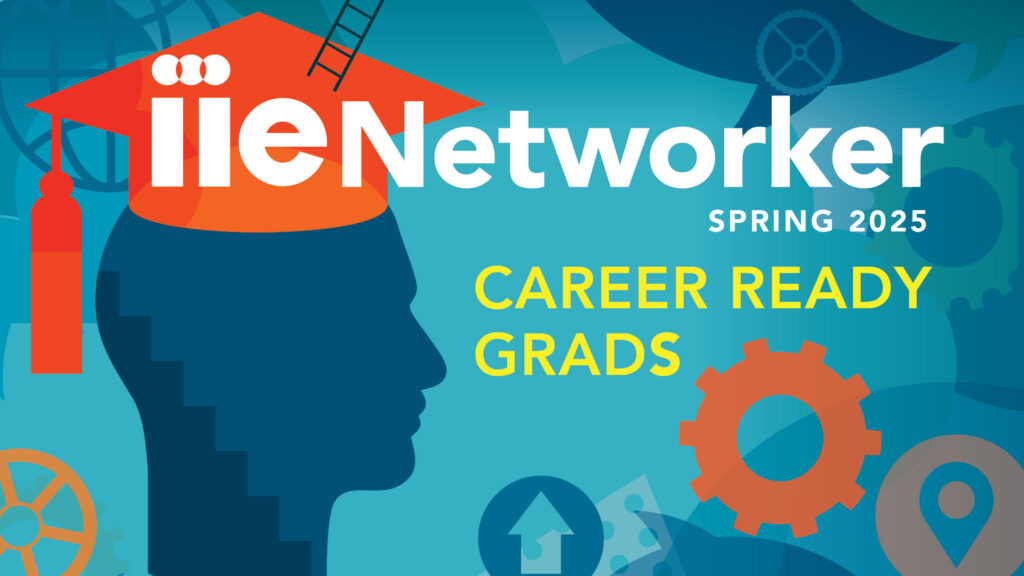
Career Ready Grads
In the Spring 2025 issue of IIENetworker, Higher Education Professionals Focus on Connecting Global Learning with Workforce Skills
As the world of work continues to evolve, so too must our approach to preparing students for global careers. Career readiness is more than just a buzzword – it’s a critical component of a student’s educational journey, equipping them with the skills, experiences, and networks necessary to navigate an increasingly interconnected world. The ability to navigate various cultures, communicate across borders, and think critically about global challenges are skills employers increasingly value, especially as students and employers alike evaluate how disruptive innovation will impact the future of work.
This issue of IIENetworker reflects a broader movement to ensure international education isn’t just an enriching experience; it’s also a strategic investment in students’ futures. The responsibility lies with all of us — educators, administrators, and policymakers — to create pathways that connect international experiences with career aspirations. Issue topics include:
- Future of work projections and research demonstrating the competitive advantages of international internships
- Expert guidance for assessing and reorienting curricula and education abroad programs
- How critical language study programs can lead to careers in national security and intelligence
- Assisting students with articulating the professional outcomes and applications of global learning
- A North Carolina community college meeting the needs of the local economy with job-ready, global learning experiences
- The value of alumni engagement and industry-specific mentorships
Throughout my own travels, including my personal milestone of visiting all seven continents, I’ve learned that career growth is a continuous journey shaped by exposure to new ideas, cultures, and ways of thinking. Just as global learning fosters adaptability and problem-solving, career readiness is an ongoing process – one that evolves with every new experience.
I invite you to engage with the thought-provoking perspectives in this issue and reflect on how we, as international education professionals, can better prepare students for the global workforce. By embedding career readiness into international experiences, we ensure that students aren’t just prepared for their next job, but for a lifetime of career success.
The semiannual IIENetworker magazine amplifies knowledge and best practices for higher education professionals. Contributors provide strategic guidance and lessons learned from their international education efforts, including building international and academic partnerships, recruiting international students, and advocating for study abroad and student mobility. As a benefit of IIENetwork membership, more than 1,500 organizations and 10,000 professionals receive copies.
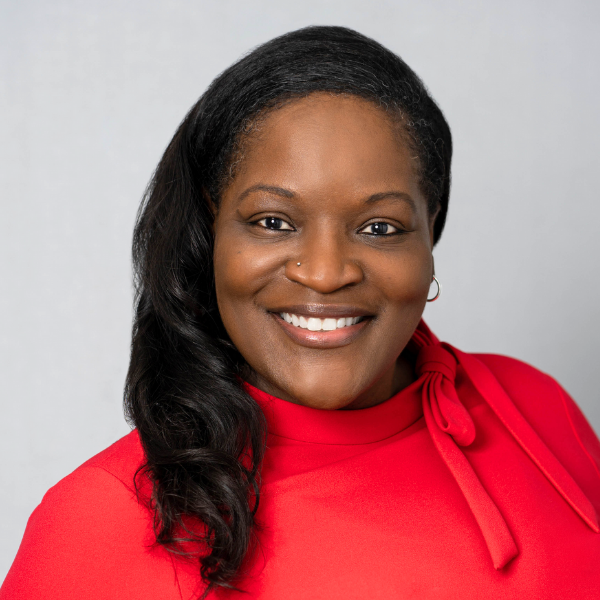
Courtney Temple
Executive Vice President, IIEEducation has long been viewed as a vehicle for economic and social mobility for individuals and nations alike, and it was a driving principle behind the Ford Foundation’s groundbreaking International Fellowships Program (IFP). Today, however, data is currency, which places an increase in demand for demonstrable returns on investment, including education. How can you measure the impact of investing in a person’s education? That’s what IIE’s Research, Evaluation, and Learning (REL) team did for a decade, and I was fortunate to join the investigation, most recently resulting in the 2024 publication of Weaving Journeys of Social Change and Impact. The book is a retrospective of both the Ford IFP itself as well as learnings from IIE’s subsequent IFP Alumni Tracking Study of the program’s long-term impacts. Between 2001 and 2013, the Ford IFP supported advanced studies for more than 4,000 leaders from 22 countries across Latin America, Africa, the Middle East, and Asia.
IIE’s REL division uncovered several noteworthy findings as they conducted the study from 2013 to 2024. For example, 42% of IFP alumni who participated in the study became public officials in their respective countries. As time progressed in IIE’s 11-year study, IFP alumni advanced in their respective careers and amassed the economic security and social capital they needed to drive multiplier effects in their respective networks—from mentoring emerging leaders to providing expert guidance for the benefit of their home communities at large. Consider some highlights:
- In a comparison of alumni responses across the 2015 and 2018 surveys, more alumni respondents reported being role models in their communities in the later period.
- Of alumni respondents who reported a positive change in their places of employment, 74.2% are working directly with their home communities. Most of these organizations provide technical services and advocacy in these communities, with 63.8% providing technical assistance and 62% providing training.
- 695 IFP alumni have founded new organizations, and 1 in 10 were created with a fellow IFP alum.
Perhaps the most significant impact is a quality that can’t sufficiently be quantified: the cultivation of an enduring sense of shared responsibility to their communities. Most IFP alumni who participated in IIE’s study reported that the IFP helped them to understand the value of availing opportunities for others in their respective communities and organizations—and it empowered them to do so on an ongoing basis.
I had the opportunity to co-author a Weaving Journeys chapter with Gabriela Lopez Sotomayor, an IFP alumna from Peru who specializes in rural development and environmental sustainability; in 2002, she received a Ford IFP Fellowship through which she earned a master’s in agricultural tropical development at Institut Agro Montpellier in France. In the process of working with Gabriela, I learned a great deal about the research process of measuring global leadership and social impact. In addition to cultivating a productive working relationship with Gabriela, this experience offered insights into effective coauthoring practices.
Do your research
- Make time for a quiet session to think about your coauthor. Start by reading their resume.
- What have they researched, contributed to, or published?
- What is their primary language? Is it the same as the language of the chapter?
- Where are they located? Familiarize yourself with any time difference between locations.
- How comfortable are they with using meeting platforms?
Set parameters
- What is the overarching timeline of the project?
- What systems are necessary? Who will procure them for you and your coauthor?
- Who will create the meetings or schedule?
- What should be covered in the first meeting?
- Don’t be afraid to ask, what could possibly go wrong?
Communicate well
- Pace yourself and pause while talking.
- Be an active listener.
- The first meeting should have ample time to meet each other and cover the overarching timeline of the project and the shared expectations toward creating the chapter.
- Send the invite to the second meeting while in the first meeting. Agree on what each author will bring to the second meeting.
- Establish a communication protocol for modifying things at the “last minute.”
Benefits of coauthoring
- Working with a coauthor can bring together different skill sets and areas of expertise. This can lead to a better-informed and more well-rounded chapter, with each author learning along the way.
- Revising together in real-time can enrich the discourse, leading to a clearer understanding of each other.
- Coauthoring can be a proactive way of keeping each other accountable and motivated to maintain a consistent writing schedule and meet deadlines.
IIE invites you to the IFP Alumni Tracking Study website to explore the data and stories. Weaving Journeys of Social Change and Impact Ford Foundation International Fellowships Program is available for purchase through the IIE Bookstore.
This year, IIE New Delhi celebrates 20 years of operation in support of higher education scholarship administration, leadership development, and critical development in the region. In February, the leaders of the U.S. and India reaffirmed their commitment to a strong partnership for a free and prosperous Indo-Pacific, emphasizing ASEAN centrality. They highlighted the importance of people-to-people ties, noting that over 300,000 Indian students contribute more than $11 billion to the U.S. economy. Both leaders resolved to strengthen educational collaborations through joint degree programs, Centers of Excellence, and offshore campuses of U.S. institutions in India. Last year, Montclair State University participated in IIE’s Leadership Delegation to India to explore and expand bilateral higher education partnerships. Wendy Lin-Cook, Vice President for Enrollment Management in the Office of the President shares her experience.
Montclair State University is committed to expanding its global footprint through meaningful international partnerships. One of the most promising collaborations currently underway is with Somaiya Vidyavihar University (SVU) in Mumbai, India. Through academic exchange, experiential learning, and faculty collaboration, this partnership is poised to create transformative educational opportunities for students at both institutions.
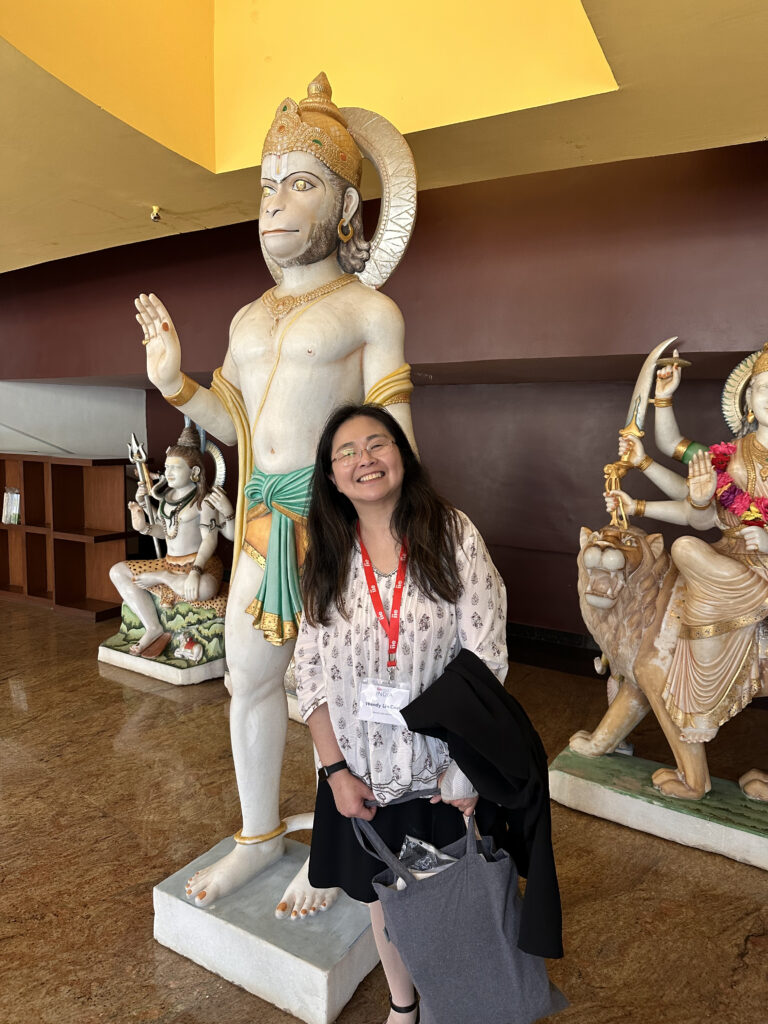
Almost one year ago, I had the distinct privilege of joining the IIE Leadership Delegation to India, accompanied by Montclair State University president, Dr. Jonathan Koppell.
This visit, aimed at expanding educational partnerships and fostering greater academic and scholar mobility, provided us with a unique opportunity to engage with some of India’s most forward-thinking institutions. Among the highlights of this journey was our visit to Somaiya Vidyavihar University (SVU) in Mumbai, an experience that left a profound impact on me. From the day we arrived, we were met with a warm and gracious welcome from the wife of the institution’s founder.
The university’s mission to foster knowledge that serves the global community resonated deeply with me, aligning closely with Montclair State University’s values.
Somaiya Vidyavihar University is a hub of advanced research and entrepreneurship.
During our visit, I had the opportunity to meet a student in their medical innovation lab, witnessing firsthand the cutting-edge research being conducted. The level of innovation and ingenuity at SVU rivals, and in many cases, exceeds, similar research initiatives in other parts of the globe. The university’s focus on entrepreneurial thinking is particularly noteworthy, as students are encouraged to go beyond traditional academic boundaries and pursue real-world impact through their research and business ventures.
A Force-Multiplier
The visit in February 2024 laid the groundwork for an innovative partnership, particularly in business and healthcare education. Over the past year, we have built a comprehensive partnership together, focusing on our Business and Nursing programs. This collaboration is not only academic but also involves corporate sponsorship, creating an innovative, multifaceted approach to global education. The partnership expands career opportunities, provides global exposure for students and faculty, and elevates teaching practices at both institutions.
“Doing Business in India” Program & Consulting Project
As part of their MBA program, students from Montclair’s Feliciano School of Business traveled to India in January 2025, gaining firsthand experience in international markets.
Approximately 40 students from both universities were divided into eight teams to develop business strategies for ProKlean, a company specializing in sustainable “green chemistry” solutions. Teams worked remotely with company executives before the trip, presenting strategic recommendations for market expansion in both India and the US before presenting live at SVU on January 13th.
Nursing Partnership & Clinical Collaboration
Building on this momentum, Montclair’s School of Nursing is establishing a collaborative program with K.J. Somaiya College of Nursing, a distinguished institution within SVU.
A key meeting in August 2024, between faculty from both institutions identified several focus areas, such as research collaboration, wherein faculty members are paired to develop joint research proposals with a shortlist of research topics. Student exchange and immersion is another focus area, for example, senior B.S. Nursing students from SVU may have the opportunity to participate in a bridging program at Montclair, including preparation for the NCLEX licensure exam. There was also discussion of a virtual course by SVU on community health initiatives, available to Montclair State University students as part of their curriculum.
In addition to Montclair nursing students engaging in COIL (Collaborative Online International Learning) courses and gaining clinical experience at SVU’s 550-bed teaching hospital, practical education for both student populations will be enriched with a global healthcare perspective.
These programs are designed to equip students with global competencies and hands-on experience that will set them apart in their careers.
Looking to the Future
In April 2025, leaders from SVU will visit Montclair State University as part of Indian delegations in partnership with Association of Indian Universities (AIU). Leaders from various Indian universities will join a summit that includes the presidents from seven other NJ universities in order to build relationships and identify further opportunities for institutions across India and New Jersey.
These partnerships are not just about academic exchange; they are about meaningful engagement that strengthens all of our institutions. A key component of the initiative between SVU and Montclair is experiential learning. By working together, we can leverage our respective strengths to create a more dynamic and globally connected educational experience.
We are excited about the potential this collaboration holds for both Montclair State University and Somaiya Vidyavihar University. From cutting-edge medical research labs to entrepreneurial incubators, SVU embodies a forward-thinking educational approach that resonates with Montclair’s mission. Our shared commitment to innovation, entrepreneurship, and global engagement can lead to new, exciting opportunities for students and faculty alike.
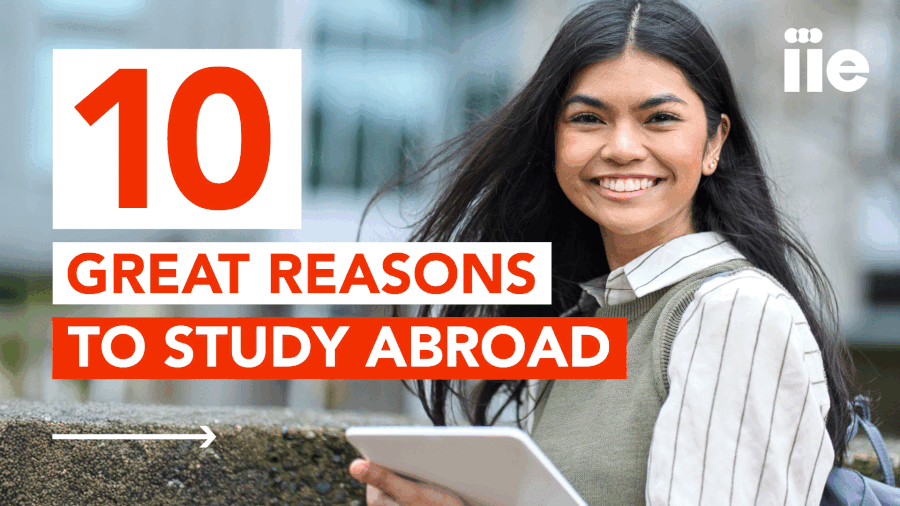
Studying abroad is an incredible opportunity that offers a wealth of benefits beyond academic learning; studies have shown that leaving one’s home country to study a subject, engage in language immersion, or intern can better prepare students to enter and thrive in the future of work. Here are ten compelling reasons why students should consider taking the leap and studying in a foreign country.
1. Expand Your Worldview
When you study abroad, you immerse yourself in a new environment with different customs, traditions, and perspectives. This exposure broadens your understanding of the world and helps you appreciate people, places, and customs that exist beyond your home country. You’ll gain a more global perspective, which is invaluable in today’s interconnected world.
2. Enhance Your Career Opportunities and Grow Your Network
Studying abroad can significantly boost your career prospects. More than half of 4,500 college graduates surveyed by IIE reported that they believed their study abroad experience contributed to a job offer at some point. Further, employers consistently value skills such as curiosity, adaptability, and a willingness to step out of your comfort zone—all skills that job candidates who have studied or interned abroad can articulate with real-world experiences from their time abroad. Additionally, you’ll have the chance to build a global network of contacts, which can open doors to exciting career opportunities in the future.
3. Learn Another Language and Improve Your Multi-Lingual Skills
Living in a foreign country is one of the best ways to learn a new language. You’ll be surrounded by native speakers, giving you ample opportunities to practice and improve your language skills. Being bilingual or multilingual is a highly sought-after skill in the job market and can give you a competitive edge. Sixty-eight percent of people who studied abroad for one academic year credited the experience with helping them to land job offers, according to IIE’s Gaining an Employment Edge study.
4. Experience Another Culture First-Hand
There’s no better way to understand a culture than by experiencing it firsthand. Studying abroad allows you to immerse yourself in the local way of life, from trying new foods to participating in cultural traditions. This deep cultural immersion helps you develop a greater appreciation for the host country’s heritage and customs.
5. Make New Friends from Around the World
One of the most rewarding aspects of studying abroad is the opportunity to meet people from all over the globe. You’ll form lasting friendships with fellow international students and locals alike. These connections can enrich your life and provide you with a support network that spans continents.
6. Discover New Things About Your Own Culture
Living in a different country often gives you a new perspective on your own culture. You’ll start to notice the unique aspects of your home country that you may have taken for granted. This newfound awareness can deepen your appreciation for your own cultural heritage and identity.
7. Learn More About Yourself and Gain Self-Awareness
Studying abroad is a journey of self-discovery. Being in a new environment challenges you to step out of your comfort zone and adapt to unfamiliar situations. This experience fosters personal growth and self-awareness, helping you understand your strengths, weaknesses, and values more clearly.
8. Strengthen Communication, Team Building, and Adaptability Skills
Living and studying in a foreign country requires strong communication skills, especially if you’re navigating a language barrier. You’ll also develop teamwork and adaptability skills as you collaborate with people from diverse backgrounds. These skills are highly transferable and valuable in any professional setting. In fact, IIE and CIEE’s study on Standing Out in a Competitive Market finds that three in four alumni of study abroad programs confirmed that participating in an internship abroad was helpful in acquiring their first full-time job.
9. Boost Your Confidence and Independence
Moving to a new country and managing life on your own can be daunting, but it’s also incredibly empowering. You’ll gain confidence as you overcome challenges and navigate unfamiliar territory. This newfound independence will serve you well in all aspects of your life, both personally and professionally.
10. Become a Savvy Traveler
Studying abroad often involves traveling to different cities and countries. You’ll become adept at planning trips, navigating public transportation, and managing travel logistics. These skills will make you a more confident and resourceful traveler, ready to explore the world with ease.
In conclusion, studying abroad is a transformative experience that offers both professional and personal benefits. From expanding your worldview to enhancing your career prospects, the advantages are endless. So, if you have the opportunity to study abroad, seize it—you’ll gain memories, skills, and friendships that will last a lifetime. View IIE’s resources and expertise to support study abroad participation here.
Prairie View A&M University Student Bryson Stokes Reflects on Study Tour to Ghana
Studying abroad is one of the best ways to apply classroom learning, acquire international perspectives, and discover career pathways. Each year, approximately 300,000 U.S. college students opt to take their studies abroad to unlock these opportunities. One of them is Bryson Stokes, a senior nutrition major at Prairie View A&M University who embarked on his very first study abroad trip last summer. He shares how the two-week study tour to Ghana enhanced his studies, and how he hopes to apply the international educational experience to his career.
What interested you in participating in the LFW Fellowship program?
My mentor, Quincy Moore, thought I would be a good fit for the program, and that I could represent Prairie View A&M University well, so he nominated me. What initially attracted me to the LFW Fellowship was the destination, Ghana. But once I learned about the program’s principles of commitment, communication, service, self-awareness, global-mindedness, and leadership, I could not let the opportunity pass me by.
What did you learn about nutrition and food during LFW’s study tour to Ghana?
LFW’s Fellowship to Ghana served as a confirmation for me. I knew I loved studying food and nutrition, but being able to add value in a space with other fellows and mentors made me feel special—like I, specifically, had something to offer to this field and the world. At each meal, I shared nutritional information about the food, which confirmed my passion for nutrition education.
Academically, I felt very gratified and inspired to go as far as I could with my passion. Since coming back to the United States, I have been eager to solidify my post-graduate future in the nutrition space. I learned how to recognize spaces for me as a professional and confirm the importance of knowledge sharing.
How do you plan to apply what you’ve learned to make an impact in your community?
Upon returning to the States, I began to actively share my story with my friends and family, sharing gifts and anecdotes about anything that reminded me of my study tour to Ghana. I have challenged myself to practice gratitude and share it with my friends by requiring everyone who comes to my office to share three things they’re grateful for.
I think that everyone can take and give. In the United States, there are areas with food insecurity, but we mirror some communities abroad in terms of the food that we produce. For example, in Accra, Ghana, grains and fish are produced and consumed a lot and because of that, chronic diseases are less prevalent among the people there. Here in the U.S., we can potentially reduce chronic disease by making the most out of what we have and what’s available to us.
Was there a specific moment during this trip that significantly impacted you? What lessons or insights have you gained from it?
In Kumasi, we were introduced to the Tetrfu School of Technology. The connection between Leaders of the Free World, Culture Beyond Borders, and Tetrfu School of Technology is a man named Ato. Ato was our tour guide throughout most of the study tour. When he is not being a gracious host, he works at Tetrfu as a teacher.
Ato invited the LFW group to his school to show us the culture of education, dance, and community in a rural setting. The ask from Tetrfu was simple: help to rebuild the kitchen that had been destroyed in a rainstorm. One of the unique pillars of LWF Fellowship were the service-learning opportunities they found for us in each city. I was very excited to serve.
Preparing for the day, we were advised to wear gloves and sunscreen and work within our range. I was no stranger to hard work and was thoroughly accustomed to the Ghanaian heat because it had nothing on Texas humidity. As I learned how to mix mortar and carry bricks, I felt good. Then, I learned how to lay the bricks and mortar in rows. It was enjoyable. I felt very manly and noble. Soon, however, my time was up, and I let one of the other fellows take my place, laying the bricks so I could take a water break. Suddenly, he was done laying bricks, and many of us were just standing around and talking with the kids and teachers. I found myself looking for work and feeling impatient. I wanted to keep helping even though the work for the day was done.
It was only during a reflection section led by Venida, one of the mentors, that I unpacked where my attitudes toward hard work came from. I do not have to work incessantly to be valuable; however, I should be swift and intentional when I do work. After sitting with my feeling of shame for thinking we as a group were underperforming after finishing the day’s work, I have begun taking the steps to unpack and unlearn “the invisible tax” often placed on and internalized by Black Americans specifically.
What insight or advice would you give your peers about international education experiences?
Growing up in Pearland, Texas, I always wanted to make it out. Not because I was less fortunate but because I didn’t always see my place there or feel supported by many people. I could think of nothing special that came from Pearland that made other Black kids excited about themselves or imprinted on them that they could be whoever they wanted to be, so I tried to get out as soon as I could. As I’ve matured, I realize that it is more important to address the issues in your own community rather than flee elsewhere and adopt the issues of another city.
IIE Has Awarded 3,000+ Grants Since 2010, Allowing Students to Quickly Meet Their Immediate Educational Expenses
above: With an ESF grant, Taseen Iqtider of Bangladesh is able to continue earning a B.S. in Computer Science at Tennessee Tech University: “This emergency fund came at the perfect time, right when financial issues were starting to impact my studies. It helped ease the burden, allowing me to focus on my academics without the constant stress. I’m truly grateful to IIE for the support.”
The ESF award provided me with highly valuable support… It helped to cover essential educational expenses… ensuring I had the resources needed to succeed academically. Additionally, the award helped mitigate financial burdens by assisting with health expenses, transportation costs, clothes, rent, and food, allowing me to focus on my studies with reduced stress and greater peace of mind.“
2023 IIE Emergency Student Fund Grant Recipient from Morocco
There are more than 1 million international students earning degrees in the United States, according to the 2024 Open Doors Report. But before they can become leaders and innovators, they face unique financial burdens when crises such as climate disasters, instability, and war strike in their home countries. With tuition money often redirected for immediate recovery needs at home, many international students – who’ve worked so hard to gain admission – quietly face two bleak prospects: either return home or drop out.
That’s where IIE’s Emergency Student Fund (ESF) comes in. When international crises emerge, IIE considers several factors when deciding whether to launch an ESF funding opportunity, including the duration, severity and number of crises, the population of international students in the United States from the countries we are considering, and resources available. We then turn to the IIENetwork, our global membership association of over 1,500 U.S. colleges and universities. These institutions nominate international students to receive immediate funding. After reviewing nominations and making selections, IIE offers grants that cover critical costs like tuition books, and cost-of-living expenses when there is no other safety net.
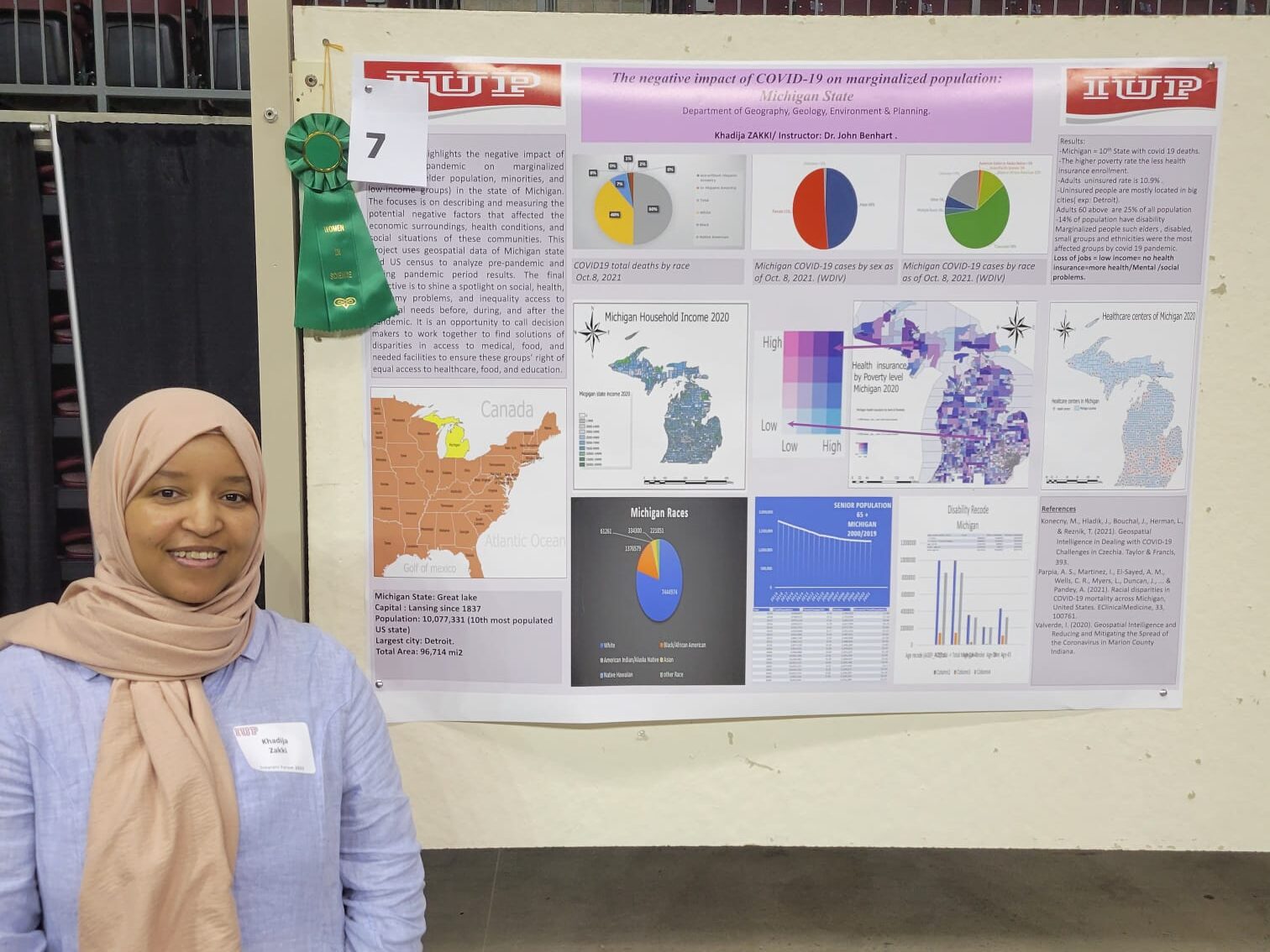
Fifteen Years of ESF
Since 2010, IIE has awarded more than 3,100 impactful grants. The importance of this rapid distribution of funds cannot be overstated. Sarah Y. Carrier, Associate Director of Global Learning at Virginia Commonwealth University shares, “IIE’s Emergency Student Fund has helped to alleviate the financial burden of numerous VCU students over the year….This financial assistance has provided our students with the ability to more fully focus on their studies, research, teaching, and other career-building opportunities.” And we’ve received numerous notes of gratitude from the students themselves:
- Without the financial assistance, I would have been unable to endure the pressure and would have had to witness my hard work on the degree, which took two and a half years, go to waste. (IIE ESF Grant Recipient from Israel)
- I just want to thank the Institute of International Education for helping me at this challenging time and it really means a lot to students like me. I will definitely try and give back to IIE through donations once I am employed so that you all can continue helping students like me. (IIE ESF Grant Recipient from Pakistan)
- This support has not only provided financial relief but also emotional reassurance, knowing that there are resources and people willing to help students in need. (IIE ESF Grant Recipient from the Palestinian Territories)
- It was help I’ll forever be grateful for…it’s taken a huge weight off my shoulders. (IIE ESF Grant Recipient from Sudan)
Unfortunately, international crises continue to proliferate. I’ve managed the ESF since 2021, and in my tenure, IIE has launched 10 rounds of ESF funding opportunities, supporting students from 90 countries, responding to crises such as:
- Conflict and wars in Ukraine (2022, 2023), Sudan (2023), and Israel, Gaza, and the West Bank (2023, 2024),
- Earthquakes in Türkiye and Syria (2022) and Morocco (2023),
- Floods in Pakistan (2022) Libya (2023), and Bangladesh (2024),
- Political upheaval in Afghanistan (2021), Kenya (2024), and Venezuela (2024), and
- Economic crises in Lebanon (2021) and Sri Lanka (2022).
We award ESF scholarships thanks to IIE’s financial commitment and gifts of all sizes from generous donors. But with additional support, we can help even more promising students.
IIE’s Fall 2024 Round
In October 2024, IIE launched an ESF funding opportunity for U.S.-based students from Bangladesh, Kenya, Venezuela, and Israel, Gaza, the West Bank, and Lebanon. U.S. colleges and universities nominated 364 students for funding — the largest number since the record-breaking COVID-19 ESF call in 2020.
One hundred and ninety-eight of the nominees are from Bangladesh! This, perhaps, is not surprising, as Bangladesh is a top 10 location of origin for international students, with nearly 16,000 degree-seeking students in the United States, according to the 2024 Open Doors Report. When Bangladesh faced political upheaval followed by severe floods in 2024, the impact was significant on these students. One nomination form stated: “One primary source of income comes from natural resources… which have been completely devastated by the floods. This has created a significant financial burden on his family, making it difficult for them to continue supporting his education and basic living expenses.” Another reported: “Her [father’s] business depends heavily on both natural conditions and governmental stability, and these factors have drastically affected the family’s financial situation.”
IIE provided $2,000 grants to 106 students through the Fall 2024 round. With support from our donor community, we can help even more students whose educations are at risk.
How to Help
You can support the ESF through IIE’s website. If you would like to donate specifically to the Fall 2024 round, helping students from Bangladesh, Kenya, Venezuela, and the Middle East, we have a special form just for that.
Fifty Fellows Visited the White House, U.S. Dept. of State, and Embassy of Australia
The 2024 Quad Fellowship Summit, held October 6 to 9, 2024 in Washington, D.C., brought together the brightest minds in science, technology, engineering, and mathematics (STEM) from Australia, India, Japan, and the United States. For the first time, the Summit also welcomed 10 Fellows from Southeast Asia, enriching the diversity and scope of the program. Over four days, 50 emerging leaders in STEM engaged in transformative experiences designed to foster international collaboration and innovation. This gathering not only highlighted the critical role of STEM in addressing global challenges but also showcased the unique opportunities the Quad Fellowship offers to its Fellows.
Created in 2021 by the Quad governments: Australia, India, Japan, and the United States, the Quad Fellowship is the first multinational scholarship and educational fellowship program specifically supporting students in STEM. It offers a unique combination of financial benefits, cross-cultural exchange, networking, and programming and focuses on elevating Fellows’ ability to use science and technology for social good. This year’s summit was made possible by the cooperation of the Quad countries and the support of industry-leading corporate and civil society sponsors with track records of driving innovation and technological advancement.
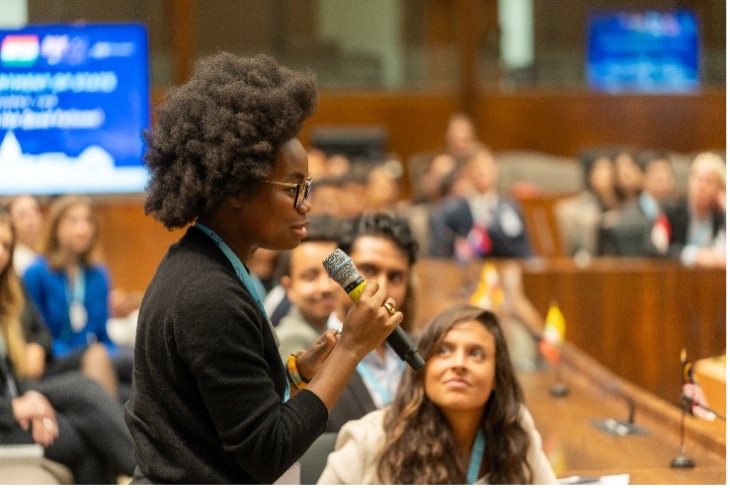

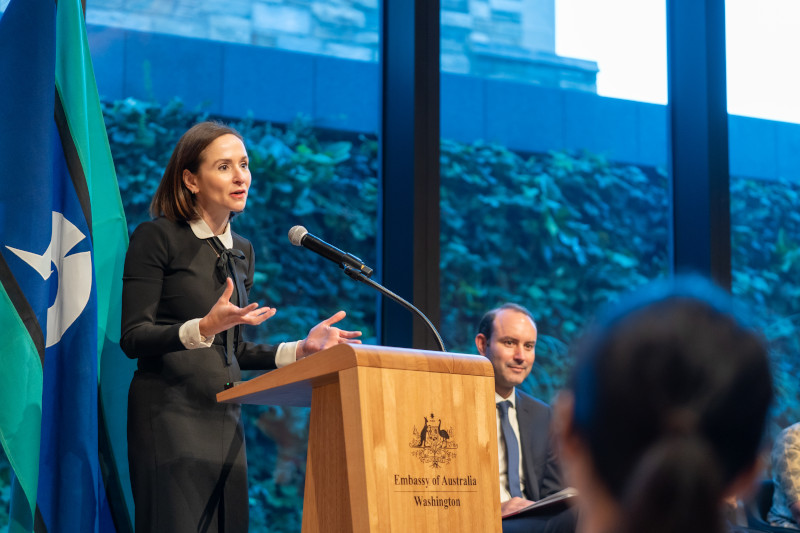
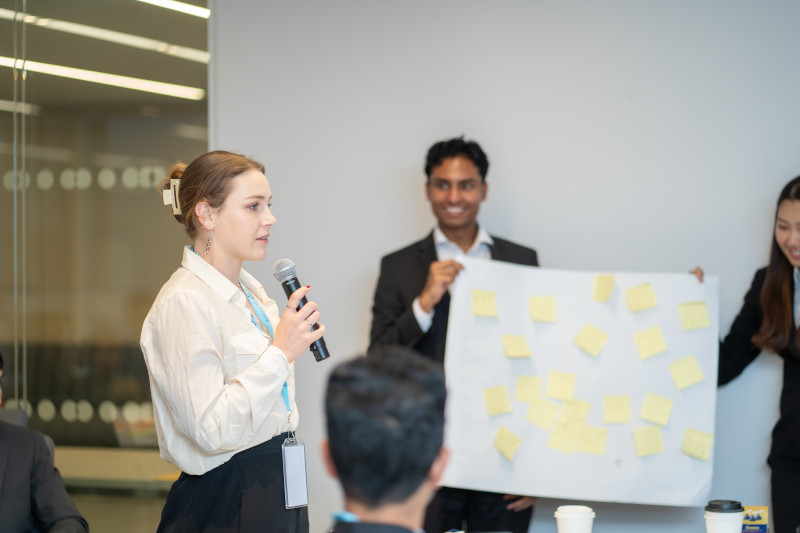
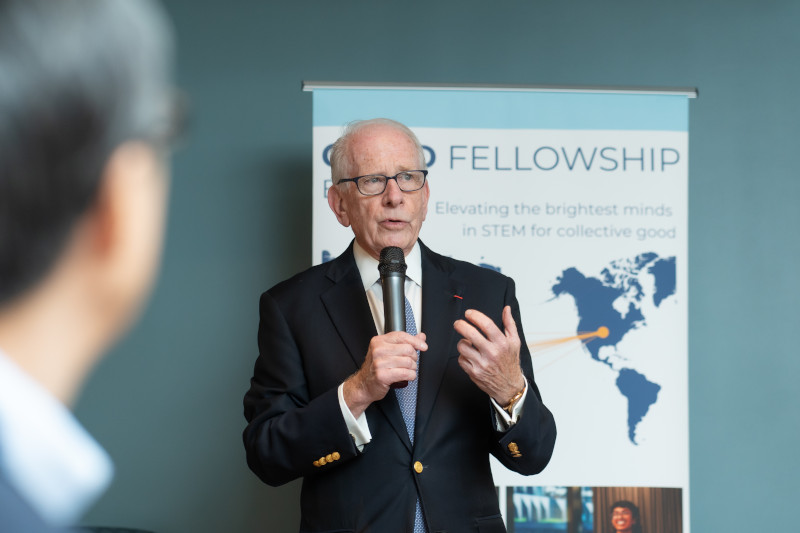
Key Activities and Highlights
The Summit commenced with team-building exercises led by Senior Fellow Ambassadors from the inaugural cohort, establishing a foundation for meaningful connections among participants. Noah Okada, a Senior Fellow Ambassador representing Japan, shared, “Leading team-building activities allowed me to witness firsthand how collaboration and trust form the foundation of meaningful partnerships across disciplines.”
In-depth discussions with prominent leaders in STEM and policy further enriched the experience. Allan Goodman provided valuable insights about the mission of the program, while members of the International Advisory Board, including Ambassador Kazuyoshi Umemoto of Japan and Professor Lisa Harvey-Smith of Australia, engaged Fellows in conversations about the intersection of science, technology, and policy.
Impactful Site Visits
The Summit also featured site visits to key institutions. At the U.S. Department of State, Fellows engaged with diplomats on the role of STEM in global policy, reinforcing the significance of their work in shaping international relations. A visit to the White House allowed Fellows to witness firsthand the intersection of leadership and innovation. The closing panel at the Embassy of Australia provided valuable insights on the potential for collaboration between among STEM leaders, policymakers, and the private sector. Each visit underscored and built upon the importance of collaboration, where each partnership becomes a critical step in the broader movement towards toward global progress.
Fellow Experiences and Testimonials
The experiences shared by the Fellows highlighted their growth and the invaluable connections formed during the Summit. Chamonix Toledo, a Fellow from the United States, described her participation as transformative. “A key takeaway was the critical importance of interdisciplinary approaches in shaping international policy,” she stated. Her research on the environmental goals of Indigenous Pacific Islanders aligns with and enriches the collective Quad research and policy agendas, illustrating how individual expertise contributes to a greater cause.
The Summit’s focus on collaboration extended beyond personal connections; it emphasized the importance of effectively communicating scientific research to policymakers and the public. Sandra Manulat, a Fellow from the Philippines, remarked on the necessity of crafting tailored narratives that resonate with decision-makers. “Engaging in policy advocacy means not only presenting data but also crafting a compelling narrative that resonates with both decision-makers and the broader public, ultimately helping to drive informed, impactful policy changes,” she explained.
Maya Foster, a Senior Fellow Ambassador from the United States, shared insights with the new cohort on embracing interdisciplinary thinking. She encouraged them to consider who might be missing from the conversation and to believe in their ideas. “Every great thing starts with an idea. But it also takes faith, dedication, and a network to make it happen,” she said. This encouragement resonated deeply with Fellows, fostering a sense of empowerment and possibility.
As the Summit concluded, the collective enthusiasm and commitment to global collaboration were clear. The experiences shared during the Summit laid the groundwork for future collaborations that will address pressing global challenges.
The 2024 Quad Fellowship Summit was more than just an event; it was a catalyst for change, innovation, and international cooperation. By bringing together a diverse group of passionate STEM leaders, the Summit underscored the power of collaboration in addressing the world’s most pressing challenges. For Fellows and potential applicants, the Quad Fellowship offers an unparalleled opportunity to grow academically and professionally while making meaningful connections across the globe.
The Quad Fellowship is administered by the Institute of International Education (IIE), a global not-for-profit organization that manages many of the world’s most prestigious scholarship and fellowship programs. To learn more about how you can be part of this transformative experience, visit our website and follow us on our social media platforms: Facebook, X, Instagram, and LinkedIn. Join us as we continue to inspire the next generation of STEM leaders dedicated to driving innovation and making a lasting impact worldwide.
Presenting Findings to Respondents Transforms Them from Subjects to Trusted Partners
As a researcher and evaluator at IIE, I’ve learned that validating findings with participants in my research is one of the most rewarding and necessary aspects of data collection, especially on sensitive topics such as war and displacement. By following up with participants to validate our data findings, we invite their feedback and ensure their experiences are accurately represented while identifying any errors or misinterpretations. This practice enhances our data results’ accuracy and maintains our connection to the real-life stories and issues that underpin the research.
Last summer, I interviewed displaced and threatened scholars on issues of safety, scholarship, and well-being. After I finished data collection and the preliminary analysis, I shared the group findings with each participant, explaining the value of their feedback while seeking it. While not all the results would directly apply to them, they were able to see the themes and topics emerging from the data collection. This validation process allowed participants to react, offer deeper insights, and see how their input was interpreted. It also helped to build trust by showing them how their contributions were represented and allowed them to clarify or correct any details. Finally, it sparked new thoughts, allowing participants to reflect on the group findings and add additional perspectives. Some even noted that seeing group findings validating their own experiences helped them feel a sense of community and appreciation for the value of the research.
Sometimes participants may challenge researchers’ interpretation. Yet, these moments often lead to richer, more nuanced understandings and can reveal practical implications not previously considered. Validating findings ensures the research remains relevant and meaningful by incorporating participants’ insights on how the research can be applied.
Consider validating findings when:
- When building trust with participants is essential. Allowing them to clarify or edit their statements helps establish trust in the evaluator. This can also support future data collection with the same group.
- When confidentiality is a concern, particularly with small samples. Allowing participants to redact statements or review how their input will be shared helps protect confidentiality and enhance transparency.
- When dealing with sensitive topics, validating findings allows participants to review how their information is presented. Grouping findings can also help participants see how their peers have contributed, adding layers of understanding.
- When unfamiliar with the context, validating findings can refine your understanding and consequently interpretation. This offers additional insights and ensures your analysis aligns with participants’ realities.
- When tackling complex or nuanced topics, participant feedback helps capture subtle differences in their perspectives, ensuring the diversity of experiences is accurately reflected.
- When aiming to build long-term partnerships, engaging participants in validating findings fosters collaboration, leading to stronger relationships and opportunities for future collaboration.
- When working across cultural or language barriers, validating findings can help prevent misinterpretations and cultural misunderstandings, ensuring your analysis reflects participants’ true intent.
- When exploring and examining difficult topics, it is important to consider participants’ capacity and avoid burdening them if they are limited in time and resources.
Expert research and evaluation are not just about producing credible findings; it’s about building relationships and fostering collaboration. This participatory approach has been a crucial shift in my work. Every time I reflect with participants, I learn something new, reaffirming the value of this engaged approach. Reflection continues beyond the analysis stage of the research and evaluation process, extending to final deliverables, where participants see how their responses have been integrated and interpreted. When research participants feel heard and valued, it fosters a deeper sense of ownership and makes the findings more impactful, as they are more likely to share and discuss them within their communities.

Janice D'Souza
Research and Evaluation Lead, IIE Research, Evaluation and LearningEach year, December 3rd marks the International Day of Persons with Disabilities when we join with organizations and nations across the world to promote the rights and well-being of persons with disabilities in all spheres of society and development and their inclusion in every aspect of political, social, economic and cultural life. An estimated 1.3 billion people – about one in six people globally – live with disabilities, according to the World Health Organization. IIE has long prioritized its efforts to promote opportunities to international education.
IIE focuses both internally and externally on supporting equitable opportunities and education for persons with disabilities. We use years of experience to collect data and publish research and resources to support higher education institutions and international education professionals, as well as look inwardly to our global workspaces and team members.
The Research, Evaluation, and Learning (REL) department collects and analyzes data to support both international students in the U.S. and U.S. students studying abroad by publishing the 2022 Open Doors Special Report on International Students with Disabilities and annual Open Doors data on U.S. students with disabilities studying abroad. EducationUSA hosted a webinar on supporting students with disabilities and participated in the EdGE’s Inclusion Series podcast. The Fulbright U.S. Student Program provides disability resources on their website and IIE team members across our IIE-administered Fulbright programs are meeting and sharing regularly questions, challenges, opportunities, practices and resources to advance their support for exchange participants.
Within our organization, an IIE Resource Working Group aims to support our work with participants as well as IIE team members through resource development and sharing, in tandem with other affinity groups, which makes space for IIE team members in a welcoming environment to discuss wide-ranging issues impacting disability, health, and within our workspace. In addition to the IIE Center for International Opportunities’s 2023 publication “Supporting First-Gen College Students in International Education Resource Guide”, the Center recently introduced Idealogues in partnership with IIE’s HR Resources Committee, a forum for IIE team members to discuss timely topics involving aspects of our work and kicked-off the series with the topic of supporting individuals with disabilities, with a brief presentation by an IIE team member sharing their topical project and its outcomes, followed by conversation and additional resource sharing.
In addition, IIE collaborates with partners to amplify their expertise and expand reach. One such partner is Mobility International USA (MIUSA), which we have engaged with for many years throughout our organizational and programmatic work. Recently in 2024, the IIENetwork membership team invited a MIUSA representative to inform members of the resources and opportunities available for professionals and students and continuously shares MIUSA’s information and announcements via the weekly Interactive newsletter. In addition, two IIE team members, Rusti O’Neal and Magda Ostrov, presented with a MIUSA colleague at the 2024 AHEAD Conference during their session “International Education: Supporting International Students with Disabilities,” highlighting international students with disabilities as an underrepresented population and discussing best practices for supporting this group.
Each year at IIE, our leadership and team members are eager to discover and implement new or enhanced ways to support and include persons with disabilities to take full advantage of the opportunities an international education provides and continuously improve our work environment and services.
IIE’s Center for International Opportunities is Prioritizing Partnerships to Reach Underserved Populations
International education offers a myriad of opportunities, but not enough students know about these opportunities or have the financial means to pursue them. This year, the IIE Center for International Opportunities set out to work with the people and organizations that have established trust and proven approaches among student populations—from low-income to first-generation college students. The 2024 shows that 34% of U.S. study abroad students identified as students of color in 2022/23, despite students of color comprising 48% of national student enrollment. First-generation and low-income college students are also lack opportunities to study abroad.
In the spirit of IIE’s International Education Week theme of embracing connections this year, we’re looking back at our collaborations this year and looking ahead to maximize impact in the next.
We started strong in February when we officially partnered with the Council for Opportunity in Education (COE), which supports federal programs delivering college access and retention services to nearly one million low-income, first-generation students and students with disabilities each year. Our goal: to make sure these students—and faculty and staff who influence them—know about, and take advantage of, the international side of higher education. Over the summer, I met with members of the COE network to inform them about the American Passport Project and other resources. Along with the Center’s summer intern, I also met several first-time study-abroad students before and after their travels to assist them with contextualizing their study-abroad experiences within their academic, career, and personal goals. Studies show that students who clearly articulate the relevant goals and outcomes of their study-abroad experiences reap greater rewards in their careers.
The Hispanic Association of Colleges and Universities (HACU) represents more than 500 colleges and universities, which are home to two-thirds of all Hispanic college students in the U.S. This fall, the Center initiated a framework for cooperation between our organizations to expand opportunities in international education for both Hispanic-Serving Institutions and Hispanic identifying students. The Center and HACU’s Institute of Global Engagement are coordinating to promote programs and services, develop and share informational resources, and participate in conferences, meetings, webinars, and other events that amplify thought leadership.
This year, building on the partnership we initiated with the nonprofit Leaders of the Free World(LFW), the Center co-sponsored several LFW engagements and its signature LFW Fellowship, which includes a summer term in Ghana. We sponsored a LFW fellow to participate in the Ghana program, as well as an IIE team member to serve as an LFW mentor during the fellowship and trip. By focusing on a culturally responsive curriculum, LFW ensures that fellows see themselves reflected in the curriculum and leadership models. We recently shared our learnings from this year’s activities during the Global Inclusion Conference; I joined Lavar Thomas and Ruby Maddox, LFW co-founders, to lead the session titled, “Increasing Black Male Engagement in International Education.” In 2025, we are looking forward to producing a Supporting Black Male Students in International Education Resource Guide, supporting the next Black Men in Global Leadership Summit in February, a webinar series to kick-off in late Spring 2025 to share information and resources for Black men pursuing global education as well as leadership and career opportunities, and hosting a networking event to build professional connections.
The Center, as part of its long-term partnership with Dickinson College, has been cultivating a community of practice for higher education professionals to reimagine an international education framework that incorporates global, intercultural, and equity and inclusion lenses. This year, we initiated, “What Next? A Dialogue on Equity and Justice in International Education,” a global dialogue series building off what we’ve learned in previous years to discuss how we have changed and how we measure success. This regional approach values the nuance of geographical contexts while also comparing each conversation’s themes for throughlines. These critical conversations are contributing to a growing body of knowledge and practices that will help inform decisions about the future of international education, which we will be publishing outcomes next year. We have conducted dialogues for North America and Europe and look forward to additional regional conversations in 2025.
The IIE Center for International Opportunities wishes a happy International Education Week to all and is grateful for the collaboration and support we receive to actively address the importance of creating, elevating, and expanding opportunities in international education!